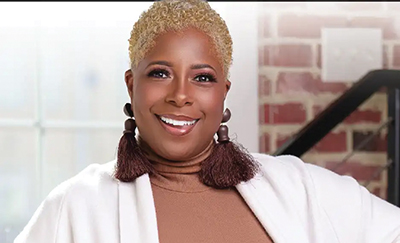By Shadawn McCants
(Source aframnews):
Imagine a young African American woman in her early twenties going to her local health department’s STI testing and treatment center. Her test results come back positive for chlamydia and syphilis, which require three rounds of antibiotics. She receives the first and second treatments, but unfortunately, as tends to happen in Black communities, she doesn’t return for her final treatment. Now imagine, six months later, the city clinic advising her to come for a follow-up appointment. When this young woman makes it back to the clinic, the healthcare sta casually asks her if she is here to confirm her HIV results. Of course, she was shocked and scared.
This is, in fact, a very real situation. For six months, this clinic knew that the young woman had tested positive for HIV and never informed her that she should be tested again. Then, there were discrepancies in the initial test and two consecutive confirmatory tests. Fortunately, this is where I stepped in two years ago to help her begin to navigate the complex emotions and decisions for her care that followed.
This is just another glaring reminder of a much larger issue that plagues Black communities, especially Black women—a healthcare system marked by racial disparities and a profound lack of cultural sensitivity. I know this because, as a long-term HIV survivor, I have seen firsthand the pervasive stigma and systemic inequities that Black women still face regarding healthcare. Today, 50% of HIV cases are in Houston’s Black communities. In fact, as of 2020, women made up almost a quarter (23.8%) of those living with HIV, with a troubling 48.3% of these women being Black. These statistics represent the glaring role of stigma, deeply rooted racism, and the persistent barriers to accessing healthcare accessing our Black, Latinx, and LGBTQ+ communities. More importantly, they represent real stories, struggles, and lives of our friends, family, and neighbors across the southern region of the US.
Black women openly report feeling dismissed and unheard, leading to misdiagnosis and inadequate care. It includes receiving lower levels of pain management, facing longer wait times, and less likelihood of receiving necessary tests and treatments. The story is the same in HIV, where there’s a marked gap in connection to care, retention in care, viral suppression and the management of comorbidities related to treatments and HIV itself. We must be the voice that demands more from our healthcare providers. Furthermore, a pervasive lack of cultural understanding and respect hampers.
Communication and trust, decreasing the likelihood of treatment adherence. Addressing these issues necessitates a shi toward increased training in culturally competent care, recognizing it as essential to effective, equitable health care rather than a mere luxury. e stark and indifferent delivery of the young woman’s diagnosis, combined with the escalating HIV rates in Houston and the southern US, underscores an urgent need for change. It also reflects a healthcare system that frequently reduces patients to mere diagnoses, overlooking their diverse backgrounds, experiences, and needs.

